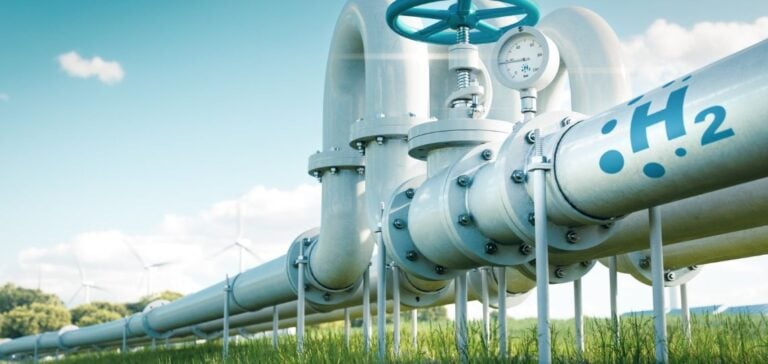The transmission system operators (TSOs) of Finland, Estonia, Latvia, Lithuania, Poland, and Germany have launched the feasibility phase of the Nordic-Baltic Hydrogen Corridor (NBHC). This initiative follows the preliminary study completed in 2024 and aims to establish a concrete plan for hydrogen transport infrastructure across these countries.
This phase, scheduled to run until 2026, will address key technical and financial aspects, including pipeline routing, compressor station planning, economic analysis, and environmental and safety permits. These elements will determine the necessary conditions for implementation and project profitability.
Transnational planning
The TSOs involved will also work on cross-border studies to harmonize technical and commercial aspects and manage stakeholder relations. These studies are expected to conclude by the end of 2026 and align with a regional coordination strategy.
An initial step, planned for 2025, is the study of common commercial principles. This phase will focus on defining cost and revenue models for managing the transnational corridor, ensuring fair distribution of investments and benefits among the stakeholders involved.
A structuring project for hydrogen markets
The NBHC is part of a strategy to develop the necessary infrastructure for transporting locally produced hydrogen to areas of high industrial demand. This corridor could play a central role in optimizing national capacities and integrating hydrogen networks at the European level.
The participating TSOs include:
– Gasgrid vetyverkot Oy (Finland)
– Elering (Estonia)
– Conexus Baltic Grid (Latvia)
– Amber Grid (Lithuania)
– GAZ-SYSTEM (Poland)
– ONTRAS (Germany)
Institutional context and future perspectives
The NBHC project was recognized as a Project of Common Interest (PCI) by the European Commission in April 2024, as part of the Baltic Energy Market Interconnection Plan for Hydrogen (BEMIP Hydrogen). This status facilitates administrative processes and access to European funding.
In October 2024, a funding application was submitted under the Connecting Europe Facility (CEF) mechanism, with results expected in the first quarter of 2025. This funding is essential to support the study work and, eventually, investment decisions.
The final results of the feasibility studies, which will integrate technical, economic, and legal considerations, will be crucial in evaluating the project’s viability and guiding future steps, particularly financial commitments.






















